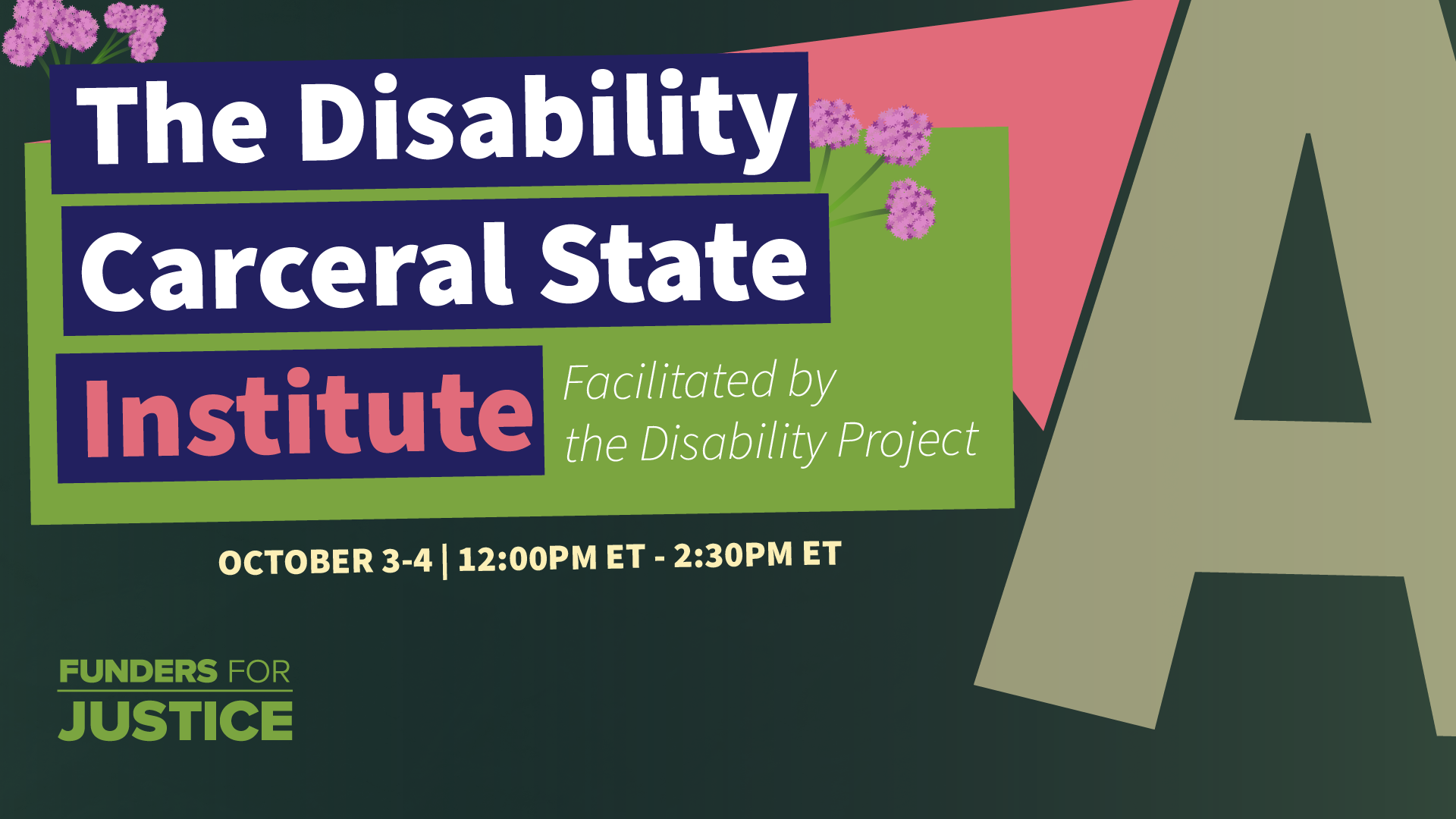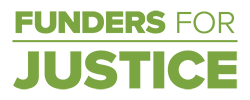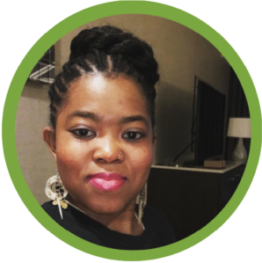The Disability Carceral State Institute
Facilitated by the Disability Project


This 2-part series uses small group break outs, informal political education conversations, and stakeholder stories, to engage participants around the following key themes:
-
A top-level overview of how Ableism operates as a hub of multiple supremacy systems ; anti – Black racism,misogyny, the hated of the poor, and transphobia as examples, working to underpin and feed mass incarceration, state, population control and violence .
-
An examination of the core elements, political analysis and identification that make up the “Disability Carceral State” and how a DJ informed Prison Industrial Complex Abolition movement will create more holistic analysis, more robust strategy and campaigns .
-
How DJ aligned philanthropic commitments are needed to resource the strategic opportunities, narrative shifts, leadership development and organizing potential in support of disability informed Prison Industrial Complex Abolition work.
*As each of these sessions is connected to the other, we strongly encourage participants to attend both.
Meet the Presenters
About Us
About the Disability Project
The Disability Project breaks isolation, grows connection, builds leadership and infrastructure for trans and queer disability, Deaf, ill and Mad communities, while increasing Disability Justice capacity in the movements that seek to serve them. The Disability Project is staffed by a multi-racial, cross-class, cross-disability and multi-generational disabled, trans & NBY team. Ericka A. Dixon and Sebastin Margaret together co-lead the project’s work and strategy. We believe that work about ableism is work about Eugenics, state control, and supremacy and because of that is inherently abolitionist.
About Funders for Justice
FFJ is a national network and organizing platform for grantmakers, donor networks, and funder affinity groups to mobilize resources to grassroots grantmaking led by and for people of color, at the intersections of racial justice, gender justice, economic justice, ending criminalization, and building models for community safety & justice.


